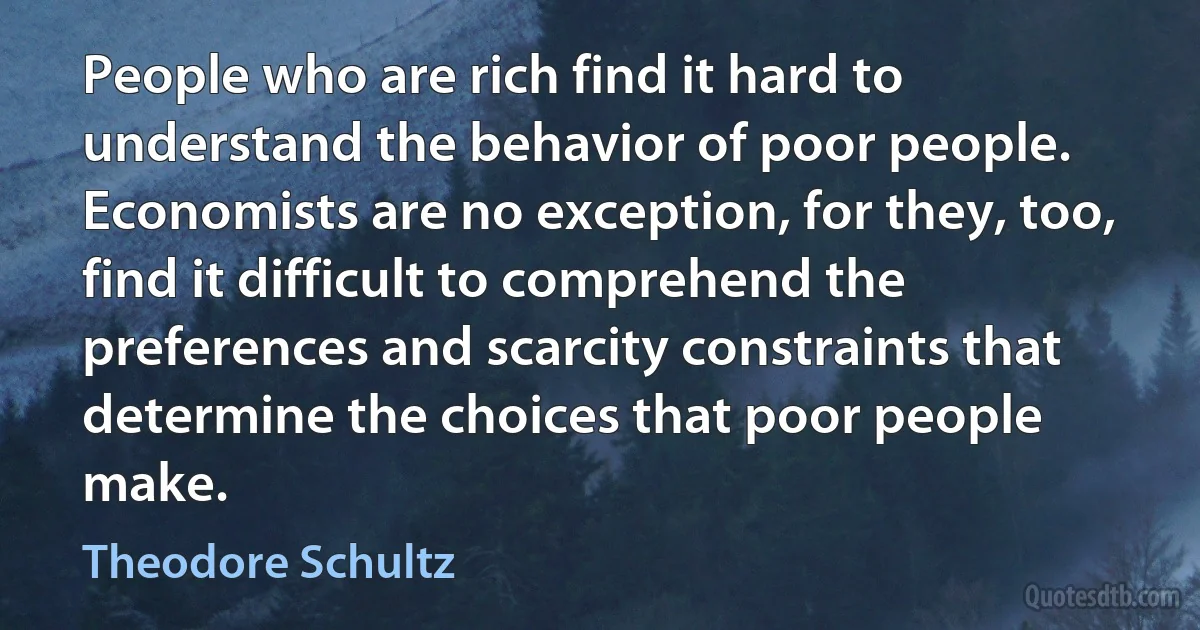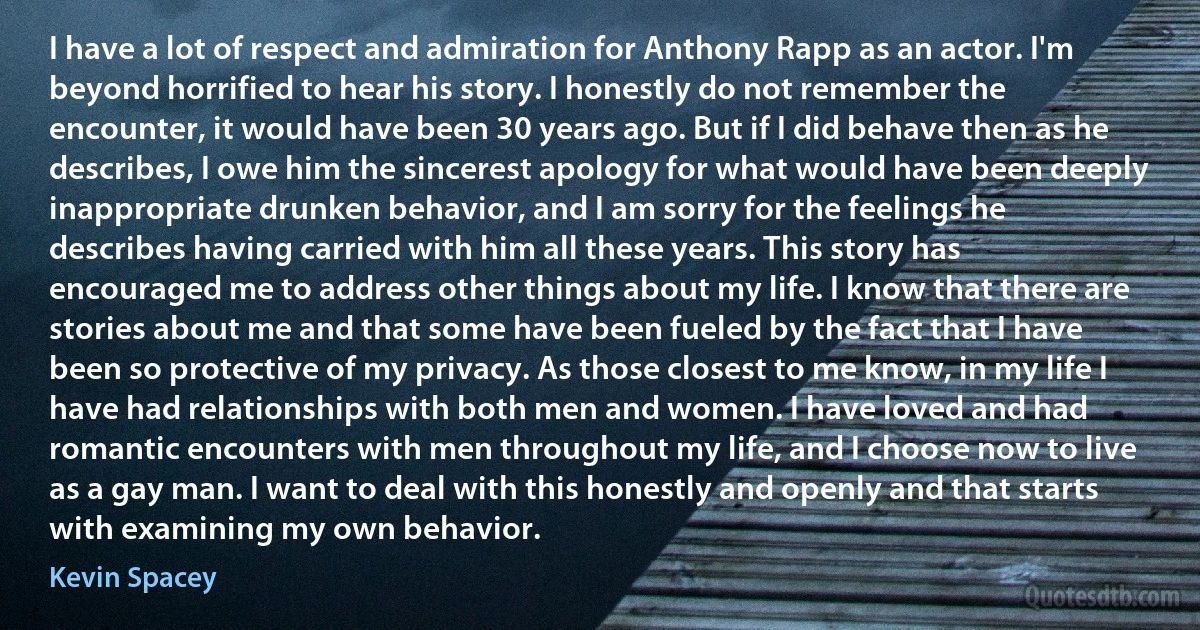Behavior Quotes - page 20
Well, I want to start out that I was lucky in the ‘60s to also be taking a class in Classical Ethology by a professor named Tom Evans, where I learned that operant conditioning does not explain all animal behavior. He explained how fixed action patterns and hardwired instinctual behavior works. And I remember going on a visit to Dr. Skinner and I felt like I was visiting, you know, the grand temple of psychology. And I went up to his office and, you know, he seemed, I'm like, "oh, you mean he's actually an ordinary person?" And we got to talking and of course back then I wore a dress you know ‘cause, you know, ladies had to be, like, dressed up, and I had a very conservative dress on, and B. F. Skinner touched my legs.

Temple Grandin
They came, by what means he did not know, from outside, the vast abstraction that none of them had ever seen. He had a mental picture of a starry void in which men and monsters swam or battled, and then swiftly erased it. Such ideas did not conform with the quiet behavior of his companions; if they never spoke about outside, did they think about it?

Brian Aldiss
Human beings fear difference,” Lilith had told him once. "Oankali crave difference. Humans persecute their different ones, yet they need them to give themselves definition and status. Oankali seek difference and collect it. They need it to keep themselves from stagnation and overspecialization. If you don't understand this, you will. You'll probably find both tendencies surfacing in your own behavior.” And she had put her hand on his hair. "When you feel a conflict, try to go the Oankali way. Embrace difference.

Octavia Butler
Being female in this world is having been robbed of he potential for human choice by men who love to hate s. One does not make choices in freedom. Instead, one conforms in body type and behavior and values to become an object of male sexual desire, which requires an abandonment of a wide-ranging capacity for choice Objectification may well be the most singly destructive aspect of gender hierarchy, specially as it exists in relation to intercourse.

Andrea Dworkin
A final aspect of all open access orders is Schumpeter's notion of creative destruction, one of the most powerful descriptions of a competitive, open access economy. When Schumpeter wrote Capitalism, Socialism, and Democracy in the early 1940s, the economic theory of perfect competition among atomistic firms (i. e., firms too small to have market power) had come under sustained attack as unrealistic. Large and powerful economic organizations dominated the new economy, and their behavior did not match the textbooks. Despite this dominance, the economy produced historically unprecedented, sustained economic development. Schumpeter asked, How could large businesses that were supposed to choke off competition and growth nonetheless generate such spectacular productivity increases in a world that seemed ever more competitive?

Douglass North
The polemical tactic of exhibiting garish mugshot photos of women's bruised faces evades the real issue. What led up to that moment in the emergency room? A video camera recording episode before and after the assault would upset the received black-and-white view of male ogres and female martyrs. This is not to excuse men for their scurrilous behavior; it is to awaken women their equal responsibility in dispute and confrontation.

Camille Paglia



